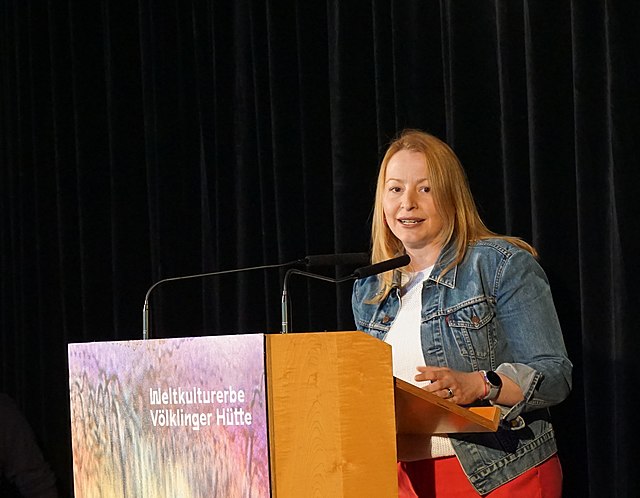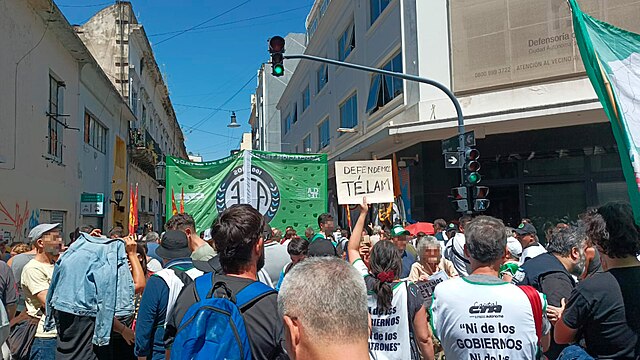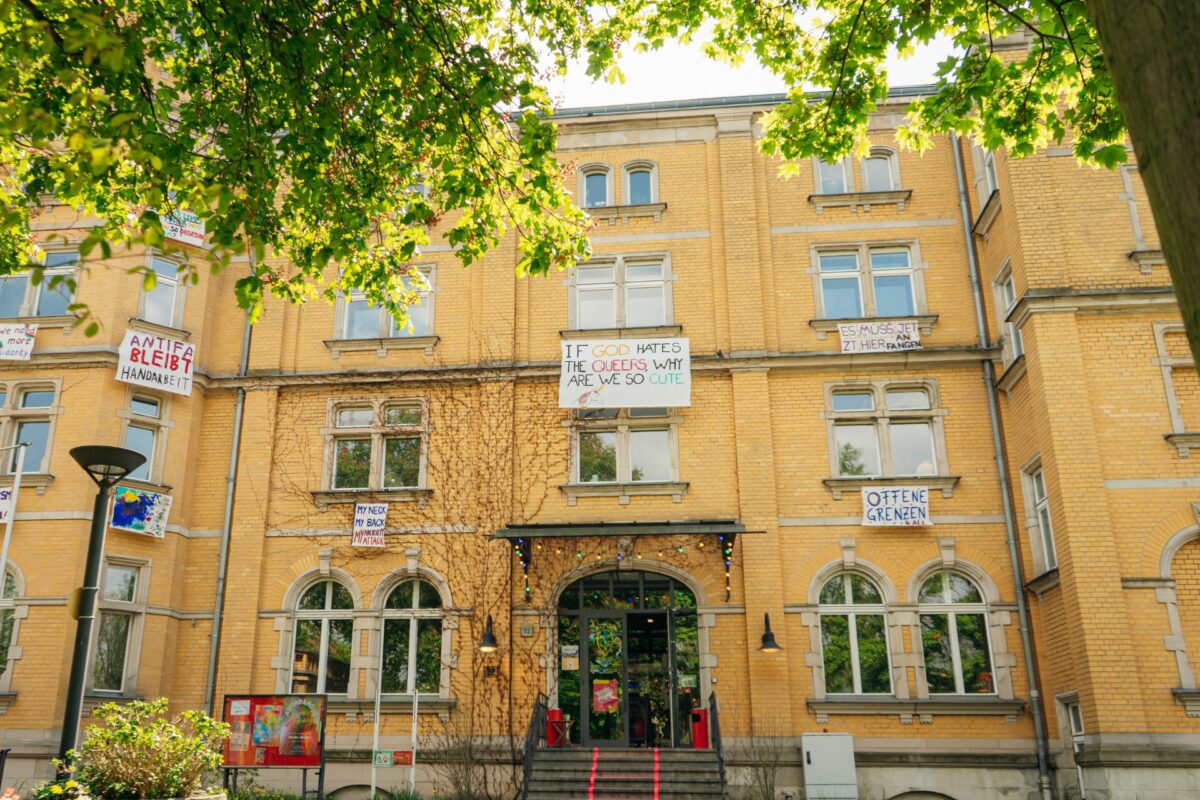Tomorrow (Friday) at 4pm, there will be a mass sit-in of the Hauptbahnhof for Palestine. On the eve of the 48th Land Day, and the 176th day of the ongoing genocide, we demand Land Back for Palestine, and for all Indigenous lands. We demand a return of all stolen lands back to their rightful keepers – in Palestine, Congo, Sudan, Haiti, Western Sahara, Wallmapu, and all other places around the world where land and their resources are stolen by colonial entities. BERLIN RISE UP❗️RESISTANCE IS JUSTIFIED WHEN PEOPLE ARE OCCUPIED❗️No Peace on Stolen Land‼️
Our next Palestine Reading Group is also tomorrow night at 7pm. This week we’ll be discussing “Militarism and How Israel Exports its Occupation”. You can find the selected reading here. The Palestine Reading Group takes place every week, on either Friday or Sunday (partly depending on room availability). Check the page of Events which we’re organising for the coming dates and discussion topics. If you’d like to get more involved in the group, to suggest and vote on future topics, you can join our Telegram group and follow the channel Reading group. Meetings are in the Agit offices, Nansenstraße 2. There is a meeting for moderators (open to anyone who’s interested) half an hour before the meeting starts.
On Saturday, there are 2 demonstrations for Palestine. At 1pm, outside Kosmos (Karl Marx Allee 131A ) you can join the Palestine Block on the Ostermarsch, the yearly anti-war demo. Different organisations are calling that this year’s Ostermarsch does not just call for peace in our world, but also for solidarity with the people in Gaza and the other Palestinian territories. Then at 2pm at Gesundbrunnen, there will be a demonstration Take your hands off Palestine. Every year protests take place in Palestine and all over the world for “Land Day”, reminding us how deeply rooted Palestinians are to their land. Join us in the fight for justice and liberation.
On Saturday evening, there is a film screening of United in Anger: A History of ACT UP followed by a Q&A with Sarah Schulman and Ben Mauk. United in Anger: A History of ACT UP is an inspiring documentary about the birth and life of the aids activist movement from the perspective of the people in the trenches fighting the epidemic. Utilizing oral histories of members of ACT UP, as well as rare archival footage, the film depicts the efforts of ACT UP as it battles corporate greed, social indifference, and government neglect. Sarah Schulman is a novelist, playwright, screenwriter, nonfiction writer and AIDS historian. It all starts at oyoun at 6pm.
Sunday is Trans Day of Visibility with a number of Events. At 1pm, there will be a workshop “Touch as a Community Practice”. In this workshop we explore how touch and body contact is a source for connection and belonging in a queer community. We establish a language and sensitivity around the needs and wishes of the participants, and create a safe and playful way of getting to know each other. We invite touch to be a practice for building trust and discuss how it can be a nurturing element for the collective body. The workshop is organised by Voices4Berlin, who are our Campaign of the Week. You can sign up here. And at 2pm, there is a rally in front of the “G-Ba”, Gutenbergstraße 13. Let’s smash the cistem! Let’s go out on the streets for trans* visibility on the 31st! After our rally, you will also have the opportunity to stop by the events organized by @Voices4berlin and @facqberlin.
On Monday at 7pm, it’s the latest LINKE Berlin Internationals Orga meeting. This month, we want to spend most of the meeting brainstorming future activities. We are particularly interested in ideas for public meetings, film showings or other Events. We will also be making the first plans for our postponed Summer Camp, which will now be taking place on 21st-22nd September. If you have any suggestions, please contact us in advance at lag.internationals@die-linke-berlin.de or come to the meeting with your ideas. Everyone is invited to join the debate. The meeting will take place in Ferat Kocak’s office in Schierkerstraße 26 (between U-Bahn stations Leinstraße and Hermannstraße).
There is much more going on in Berlin this week. To find out what’s happening, go to our Events page. You can also see a shorter, but more detailed list of events in which we are directly involved in here.
If you are looking for Resources on Palestine, we have set up a page with useful links. We will be continually updating the page, so if you would like to recommend other links, please contact us on team@theleftberlin.com. You can also find all the reading from our Palestine Reading Groups here.
In News from Berlin, fight to save the Tuntenhaus, and court case against environmental activists who painted the Brandenburger Tor is suspended.
In News from Germany, activists campaign for climate money, Germany’s finance mininster proposes pension reform, AfD is most popular party among first-time voters, new German naturalisation test to include question about Germany’s special responsibility for Israel, and Die Linke campaigns for 4-day week.
Read all about it in this week’s News from Berlin and Germany.
New on theleftberlin, we interview Ukrainian pacifist artist Ilya Kharkow, Rasha Al-Jundi and Michael Jabareen’s final artistic intervention from looks at Common Ground in Berlin, Johanna Rothe writes a poem about Anti-Germans and other Germans, taz journalist Daniel Bax looks at Germany’s problematic understanding of antisemitism, Hands Off Student Rights announces a demonstration against enforced ex-matriculation (expect an interview with the demo organisers on theleftberlin next week), oyoun celebrate winning their court case against the Tagesspiegel, Cecilia and Darío from Bloque Latinoamericano Berlin examine reactions to the right-wing Milei government in Argentina, South African Jewish artist Candice Breitz looks at what got her exhibition cancelled in Saarland, and Ilya Kharkow takes a critical look at heroism.
In this week’s Podcast of the Week, Ciarán Dold from Corner Späti reads out his article which first appeared on theleftberlin on boycotting the Eurovision Song Contest.
You can follow us on the following social media:
- We also support the Berlin LINKE Internationals facebook page.
If you would like to contribute any articles or have any questions or criticisms about our work, please contact us at team@theleftberlin.com. And please do encourage your friends to subscribe to this Newsletter.
Keep on fighting,
The Left Berlin Editorial Board



